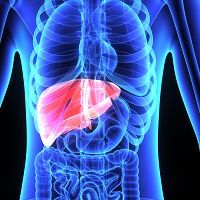Article
Safety Better in Newer Hep-B Drug
Author(s):
Reporting on a hepatitis B drug trial, researchers said a new drug offers better safety with equivalent efficacy to the drug it could replace.

Patients with hepatitis B infection (HBV) did better on tenofovir alafenamide (TAF) than on tenofovir disoproxil fumarate (TDF), researchers from Spain reported today.
In a presentation at the International Liver Congress in Barcelona, Maria Buti, MD, of the Hospital General Universitari Vall d’Hebron, Barcelona said study patients showed fewer negative changes in their bones and kidneys. Two studies showed that regardless of their HBV antigen status, patients who got 25 mg of TAF daily had the same benefits as people taking TDF, she said.
Buti was reporting on ongoing phase 3 trials that will run over 96 weeks.
Patients were randomized to get either TAF 25mg or TDF 300mg with a primary efficacy endpoint of seeing their HBB DNA levels drop below 29 IU/mL at week 48.
Safety endpoints were measurements of bone mineral density and kidney function.
In patients who showed no HBV antigens, both treatment groups showed comparable success in reaching the primary endpoint for efficacy (94% for TAF and 93% for TDF.)
In those patients who did have HBV antigens, results were again comparable (64% for TAF and 67% for TDF.)
But patients getting TAF had significantly less loss of bone mineral density and fewer signs of kidney problems.
“These two studies demonstrate that treatment with tenofovir alafenamide is as effective and yet safer than treatment with tenofovir disoproxil fumarate,” said lead author Buti.




